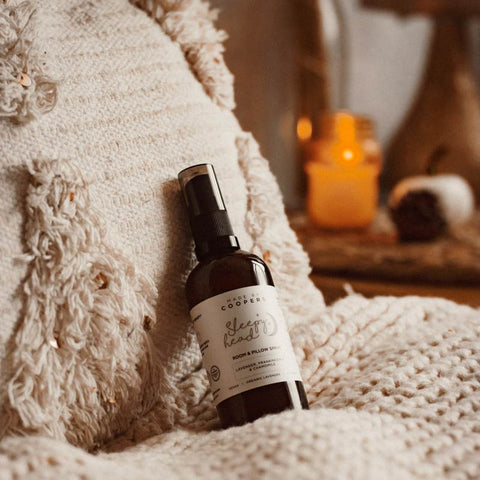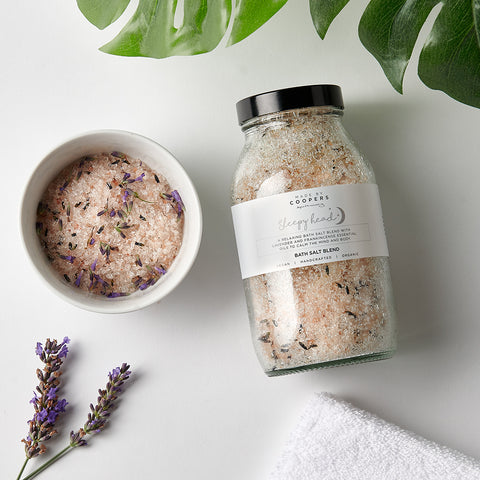How To Improve Your Sleep
How To Improve Your Sleep
It's World Sleep Day as a brand with award winning sleep products, we would love to share these simple tips, to help you improve your sleep.
One of the most important yet curious aspects of life itself is sleep. We still have so much to uncover about it, but what we do know well is that a good night’s sleep affects our mental, emotional, and physical health positively.
Beauty sleep is the closest thing we have to attain the fountain of youth. What sleep does is that it tackles skin concerns and other issues you might be experiencing in your body from the moment you hit the hay to the time you wake up in the morning. It’s a natural occurrence—your body repairs and recovers its various parts while you rest.
There’s a catch, though, and you might have already figured this out: you need to get 7 to 9 quality hours of sleep each and every night. You can’t cheat your way out of this fact. If you’re currently getting fewer than six hours of quality sleep, take a good look at your skin on your face. Lack of sleep manifests in your appearance with or without you even noticing it.
Here’s an exercise for you: try to get 1 to 3 more hours of sleep a night and you might just see an improvement in your skin and the way you feel within 2 to 3 weeks.
If you always find yourself tossing and turning at night, you’re not alone. 1 in 3 adults don’t get the right amount of sleep. Find your way back to dreamland with the tips listed below.

Create A Schedule and Stick To It
Consistency is key when it comes to sticking to a certain schedule. This principle applies to sleep as well. You’ll enjoy long-term sleep quality if you set up a fixed sleep and wake-up time.
On weeknights and weekends, try to limit the difference in your sleep schedule to no more than an hour. As much as it is tempting, make an effort not to oversleep.
Taking a nap can also wreak havoc on your sleep schedule. It’s not that you’re not allowed to nap, it’s just that you need to take caution. Try not to nap for too long or too late in the day as this will only make it harder for you to catch some z’s at night. If you really need a nap, try to do no more than 40 minutes.
If you’re planning on adjusting your sleep schedule, then it would be better to do so gradually. Create adjustments little by little with a maximum difference of 1-2 hours per night. By doing this, you’re allowing your body to get used to these changes so that following your brand new schedule is more sustainable.
Optimize Your Environment
Your environment can have a direct impact on how you sleep. Creating a comfortable and relaxing environment that’s dark, quiet, and cool can help you fall asleep faster.

Design a calming bedroom with products that induce sleep and reduce stress. Look into using high-quality mattresses, pillows, and bedding. You deserve a bed that keeps you relaxed because of the comfort it brings to your body. Good pillows and mattresses also ensure that your spine gets the proper support to avoid any aches and pains in the morning. Great blankets, on the other hand, keep you warm and comfy.
Avoid light disrupting your sleep with blackout curtains or a sleep mask. You should also try using earplugs or headphones to drown out outside noises.
Calming products such as a light scent being softly diffused can also ease you into sleep. Find a soothing essential oil to diffuse, such as our Calm or Sleepy Head and it will promote peace and tranquility as you drift off to dreamland.

Establish A Pre-Sleep Ritual
Sleep preparation doesn’t just begin the moment you lie down in bed. It starts way before that and that’s why establishing a pre-sleep routine or ritual is important in creating better sleep habits.
Forming habits will take a lot of time and effort, but it will all be worth it once you’ve fully experienced the benefits of sleep to your mental, physical, and emotional wellbeing.

For your pre-sleep ritual, remember to wind down for at least thirty minutes. You can start off with a relaxing salt bath infused with calming essential oils, such as our Sleepy Head Bath Salt Blend to really ease into the evening. Good sleep is much easier to achieve when you are relaxed and at ease. Disconnect from your devices as social media and the internet tend to keep your brain wired.
Do what you love during these 30 minutes—read a book, stretch a little, take a 10 minute meditation practice or listen to music that calms you down.

Foster Pro-Sleep Habits
Your habits during the day affect your sleep quality at night because, contrary to popular belief, sleep is an all-day affair.
Pay more attention to what you eat or drink and never ever go to bed either too hungry or too full. Avoid heavy meals within a couple of hours of your bedtime as discomfort will only keep you awake.
Keep an eye on your caffeine, nicotine, and alcohol intake as their stimulating effects can take hours to wear off.
Stay active. This doesn’t just keep your mind and body healthy, regular exercise also promotes better sleep. Do not, however, do any intense exercise close to bedtime because you will have a harder time settling down before sleeping.

Still Can’t Sleep?
If you’re still tossing and turning, try relaxation techniques such as guided imagery, mindful or controlled breathing, and meditation. You can also keep a daily sleep journal where you can track how well you’re sleeping. With this, you can understand the factors that either help or hurt you when you hit the hay.
Lastly, if you find your sleep problems worsening over time and affecting your health and safety in a damaging way, then it would be best to seek professional help. Talk with a doctor as they will help you identify and treat any underlying causes so that you can get the sleep that you deserve.
You can look, feel, and think better after a good night’s sleep. Applying the sleep habits and strategies above into your life will take time, but be patient and don’t hesitate to ask for help when you need it.














